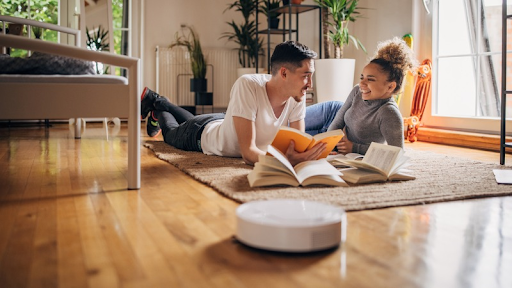Introduction
Personal growth within relationships is essential for fostering deeper connections and achieving mutual satisfaction. Whether in a romantic relationship, a friendship, or a family dynamic, understanding yourself and continuously improving can lead to more fulfilling and harmonious interactions. Developing a personal growth plan for relationships involves introspection, goal setting, and ongoing self-improvement. This blog outlines a comprehensive approach to creating a personal growth plan that enhances relationships and enriches emotional well-being.

Understand Yourself and Your Relationship Needs
Reflect on Your Relationship History
Start by reflecting on your past and present relationships. Consider what has worked well and what hasn’t. Identify patterns in your behavior, communication styles, and responses to conflicts. This reflection will help you understand your strengths and areas for improvement.
Assess your relationship goals
Clearly define what you want to achieve in your relationships. Do you want to improve communication, build deeper connections, or enhance emotional support? Setting specific goals will guide your personal growth efforts and provide direction for your development plan.
Identify Your Core Values
Understanding your core values is crucial in relationships. Values such as trust, respect, and honesty shape how you interact with others. Identify your core values and consider how they align with those of your partner or loved ones. This alignment can enhance compatibility and guide your growth efforts.
Set clear and achievable goals
Define personal growth goals
Establish specific goals related to your personal growth within relationships. These might include improving communication skills, being more empathetic, or managing conflict more effectively. Ensure your goals are SMART—specific, measurable, achievable, relevant, and time-bound.
Break Goals into Actionable Steps
Break down each goal into smaller, manageable steps. For example, if your goal is to improve communication, actionable steps might include practicing active listening, using “I” statements, and scheduling regular check-ins with your partner. This approach makes goals more attainable and allows for gradual progress.
Set Milestones and Track Progress
Create milestones to track your progress toward each goal. For instance, you might set a milestone to practice active listening in three conversations within the next month. Regularly review and assess your progress to stay motivated and make adjustments as needed.

Develop Essential Skills for Relationship Growth
Improve Communication Skills
Effective communication is fundamental to healthy relationships. Work on active listening, expressing your thoughts and feelings clearly, and being open to feedback. Consider taking communication workshops or reading books on the subject to enhance your skills.
Cultivate emotional intelligence
Emotional intelligence involves understanding and managing your emotions and empathizing with others. Practice self-awareness, self-regulation, empathy, and social skills. Techniques such as mindfulness and emotional regulation exercises can help you develop emotional intelligence.
Enhance conflict resolution abilities
Conflicts are inevitable in relationships, but how you handle them can make a significant difference. Learn conflict resolution strategies, such as staying calm, focusing on the issue rather than personal attacks, and finding mutually beneficial solutions. Role-playing scenarios can help you practice and refine these skills.
Foster empathy and understanding
Empathy involves putting yourself in another person’s shoes and understanding their feelings and perspectives. Practice active listening, validate others’ emotions, and ask open-ended questions to deepen your understanding. Empathy strengthens bonds and improves relationship satisfaction.
Build Healthy Relationship Habits
Prioritize Quality Time
Spending quality time together strengthens relationships. Make time for activities that you both enjoy and that foster connection. Whether it’s a regular date night, shared hobbies, or simply having meaningful conversations, prioritizing quality time helps maintain and enhance your relationship.
Establish healthy boundaries
Healthy boundaries are essential for maintaining a balanced relationship. Communicate your limits and respect those of your partner or loved ones. Boundaries help prevent misunderstandings, reduce conflict, and ensure that both parties feel comfortable and valued.
Practice appreciation and gratitude
Expressing appreciation and gratitude reinforces positive behavior and strengthens relationships. Regularly acknowledge and thank your partner or loved ones for their efforts and qualities. Simple acts of appreciation can go a long way in nurturing a supportive and loving relationship.
Commit to Personal Development
Personal growth is an ongoing process. Commit to continuous self-improvement by seeking feedback, attending personal development workshops, or engaging in self-reflection. A commitment to personal growth not only benefits you but also positively impacts your relationships.

Address challenges and seek support.
Manage relationship challenges
Identify and address any challenges or obstacles that arise in your relationships. This might include seeking solutions for recurring issues or working through past traumas that impact your interactions. Addressing challenges proactively helps prevent them from undermining your relationship growth.
Seek professional guidance if needed
Sometimes, professional guidance is necessary for overcoming relationship challenges or personal growth hurdles. Consider seeking support from a relationship counselor or therapist if you’re struggling with complex issues or need help navigating your growth plan.
Build a Support System
Surround yourself with supportive individuals who encourage your personal growth and relationship goals. Share your plans with trusted friends or mentors who can offer advice, feedback, and encouragement. A strong support system can provide valuable insights and motivation.

Conclusion
Developing a personal growth plan for relationships involves understanding yourself, setting clear goals, and cultivating essential skills. By focusing on effective communication, emotional intelligence, and healthy relationship habits, you can enhance your connections. and achieve greater satisfaction. Addressing challenges, seeking support, and regularly reviewing your progress ensures ongoing growth and improvement.
Personal growth within relationships is a continuous journey that requires dedication and effort. Embrace the process, stay committed to your goals, and celebrate your progress. As you develop and refine your growth plan, you’ll foster deeper, more meaningful connections and create a more fulfilling relational experience.

